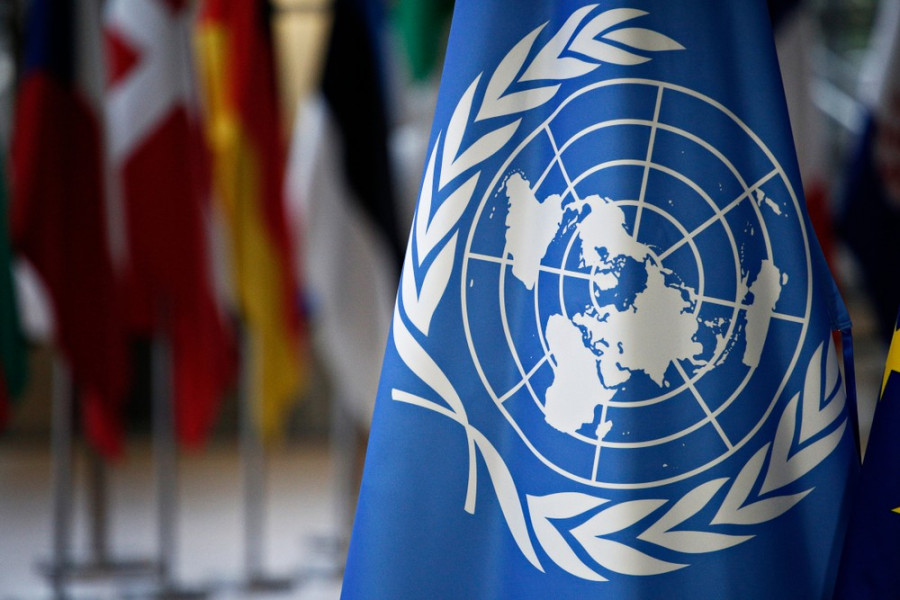National
Nepal yet to take steps to ensure justice for women who suffered sexual violence during conflict
Two rights bodies filed petitions at UN committee to build pressure on Nepal government.
Binod Ghimire
Even as Nepal has failed to ensure justice for victims of the decade-long conflict, the country has yet to implement the recommendations of the United Nations Human Rights Committee in relation to two cases of sexual violence committed during the time of war.
Coinciding with the Interantioanl Day for Elimination of Sexual Violence in Conflict, which is marked on June 19, two human rights organisations have filed petitions at the UN Human Rights committee to build pressure on the Nepali authorities to ensure justice for two women who were sexually exploited during the “people’s war” that ended in 2006.
In 2012, Purna Maya (name changed), a rape victim from western Nepal, with support from Redress, an international human rights organisation based in London, and Advocacy Forum-Nepal, had filed her case before the committee.
Five years later, in its first ruling on the case of sexual violence during the insurgency, the UN committee had called on Nepal to investigate, prosecute and punish the men who raped her, and to provide her with full reparation, including reimbursement for the medical expenses incurred.
Purna Maya, according to the statement issued by the rights bodies, was dragged from her home to the Army barracks and raped by at least four soldiers in 2004, before being dumped on the street.
She sustained severe injuries that led to the removal of her uterus and suffered severe depression and post-traumatic stress disorder. Purna Maya and her daughter became internally displaced after her husband abandoned them.
On May 20, the committee issued another decision in the case of Fulmati Nyaya (name changed), an indigenous girl who became a victim of rape, torture and forced labour by the Nepal Army during the Maoist insurgency, asking Nepal government for the investigation.
“We submitted the petitions urging the UN to exert pressure on Nepal government to follow its earlier decisions,” Om Prakash Sen Thakuri, director of Advocacy Forum-Nepal, told the Post.
He said that Nepal government had to respond to the decision within 180 days since its decision.
However, there is no response even two years after the decision was made.
In Purna Maya’s case, the UN had also urged Nepal to take specific measures to prevent the repetition of similar crimes and to remove barriers for victims to seek justice, including allowing them to file first information reports about rape cases that occurred during the armed conflict.
In March, the UN secretary-general had also urged the government of Nepal to guarantee interim relief and full reparations for victims of conflict-related sexual violence, including health and psychosocial assistance, livelihood support and adequate compensation.
The Truth and Reconciliation Commission—one of the two commissions formed four years ago to conclude the transitional justice process—last year assigned its two female members Manchala Jha and Madhabi Bhatta to recommend relief measures for such victims.
Though they consulted with the victims, they couldn’t prepare the recommendation letter before their term expired in April this year.
Only a small percentage of the 63,000 cases filed with the commission is related to sexual violence during the insurgency.
Despite pressure from the victims of the 1996-2006 conflict, which claimed nearly 17,000 lives, and the international community, Nepal is yet to ensure justice for them.
While the government is yet to appoint officials to the two commissions—the Truth and Reconciliation Commission and the Commission of Investigation on Enforced Disappeared Persons—it is yet to amend the Enforced Disappearances Enquiry, Truth and Reconciliation Commission Act, 2014 in line with the Supreme Court ruling and Nepal’s international obligations.
The Supreme Court in 2015 struck down around a dozen provisions, including the ones that ensured amnesty for the perpetrators of serious human rights violations, and asked the government to amend the Act.
Though the government has repeatedly committed—at home and the international forums—to ensuring justice for conflict victims, it is yet to amend the Act in line with the Supreme Court ruling.
The government has provided some interim relief for the victims of murder and enforced disappearances, but the victims of rape and sexual assaults haven’t received any support from the state.
“I’m in dire need of support for my health treatment and livelihood. I have not even received a card that identifies me as a victim of the conflict while other victims have received it,” the rights bodies quoted Purna Maya as stating. “How long do I need to wait for justice? I want the perpetrators to be punished and to receive appropriate reparations."




 9.7°C Kathmandu
9.7°C Kathmandu














